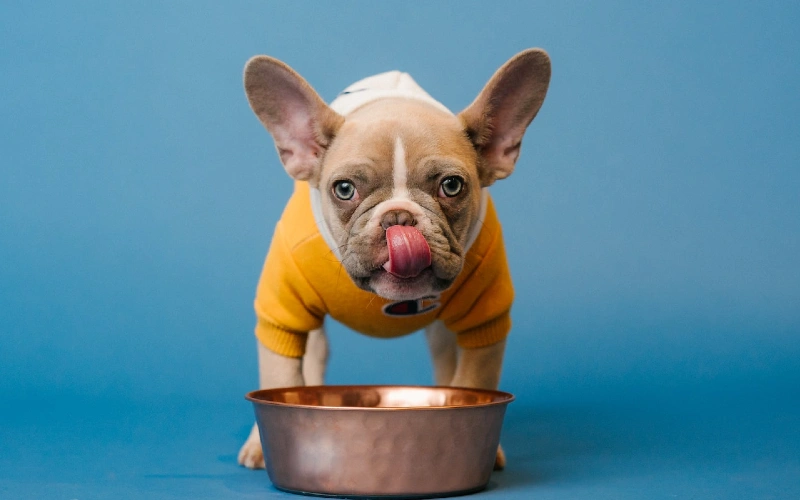Click to Skip Ahead
Grain-free dog food has been gaining in popularity over the past few years. And while grain-free diets may have some benefits, there are also some potential risks associated with them as well. In this article, we’ll take a look at the pros and cons of grain-free dog food to help you decide if it’s right for your pup.
Before We Begin
It’s important to note that, while grain-free diets may potentially have benefits for some dogs, they are not recommended for all. Talk to your veterinarian before making any changes to your dog’s diet.
The 2 Pros of Grain-Free Dog Food
Grain-free diets can offer a number of benefits for some dogs. Here are some potential pros to consider:
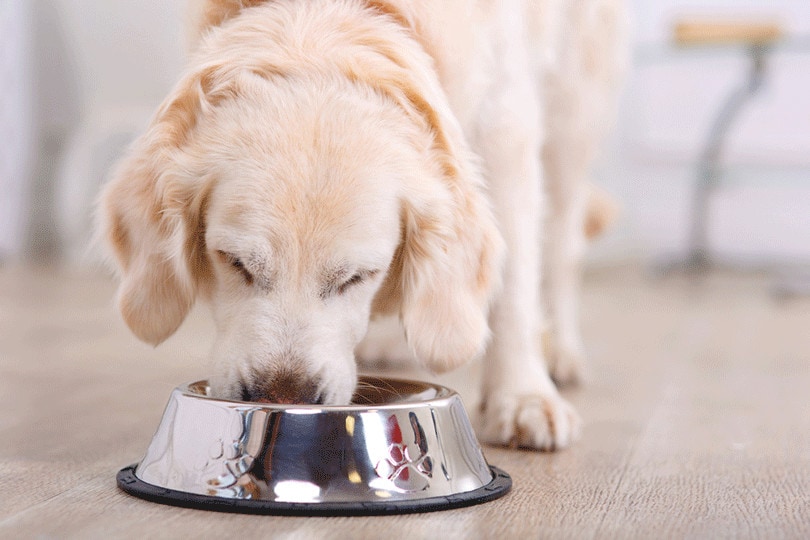
1. More Nutritional Variety
Many grain-free foods contain a wider variety of proteins and vegetables than their grain-based counterparts. This can provide your pup with a more balanced diet and increased nutrition. Be sure to find a diet that states it is nutritionally complete, and check with your veterinarian prior to feeding it.
2. Lower Allergen Potential
Although the most common food allergens in dogs are protein ingredients such as chicken or beef, some dogs may be allergic to grains as well. Since grain-free dog food doesn’t contain grains, it should be less likely to cause allergies or skin irritations in dogs with sensitivities to those particular ingredients.
The 2 Cons of Grain-Free Dog Food
There are also potential risks associated with grain-free diets. Here are some things to consider:
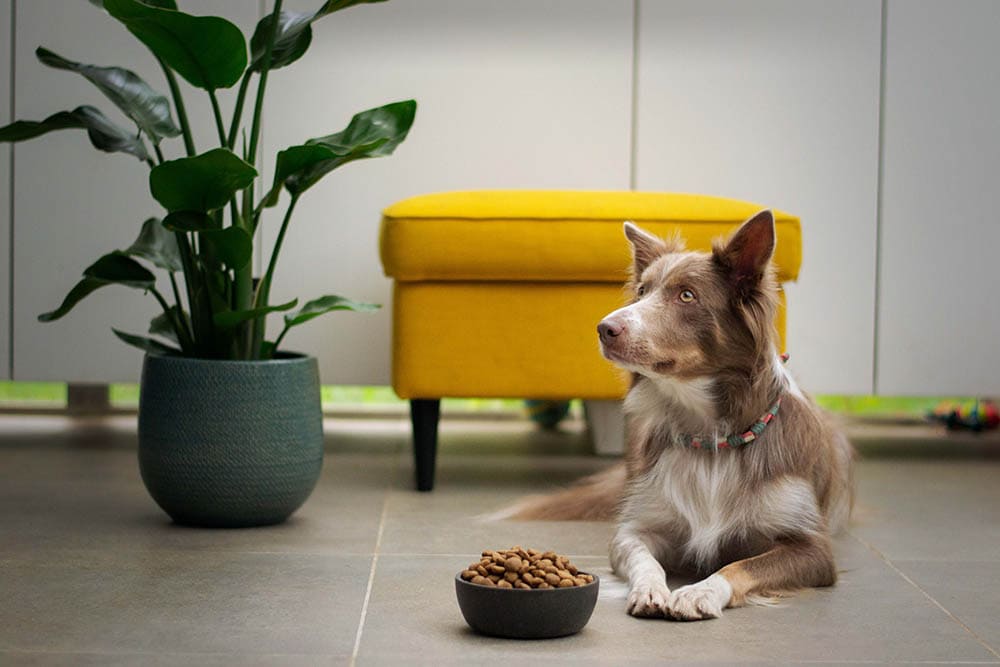
1. Cost
Grain-free dog foods can often be more expensive than traditional kibble. This may be a concern for pet parents on a budget.
2. Potential Nutrient Deficiencies
While grain-free foods may include more vegetables and proteins, they may lack certain essential nutrients that your pup needs to stay healthy, and can even cause severe illness in certain instances. Talk to your vet about supplementing your pet’s diet with vitamins or minerals if you decide to switch to a grain-free food. And always check with your vet about the brand you select, to get their input, before starting a grain-free diet.
In addition to the potential cons listed above,there is a lot we don’t yet know about the long-term effects of grain-free diets in dogs. For instance, only recently has dilated cardiomyopathy (DCM) in certain breeds been implicated from grain-free feeding, although more research needs to be done. If you’re concerned about DCM, talk to your veterinarian before making any changes to your pup’s diet.
Grain-Free Diet Buying Guide
Before switching to a grain-free diet, here are some tips for choosing the best food for your pup:
- Consult a Vet – Talk to your veterinarian about any specific dietary needs or concerns you have for your pup before making the switch.
- Check the Label – Look for high-quality ingredients such as meat and vegetables. Avoid foods that contain fillers or by-products. Ensure the food clearly states it is nutritionally complete.
- Research Sources – Read reviews of different brands and look for companies with good reputations.
- Variety – Try to offer your pup a variety of foods to get them all of their necessary nutrients.
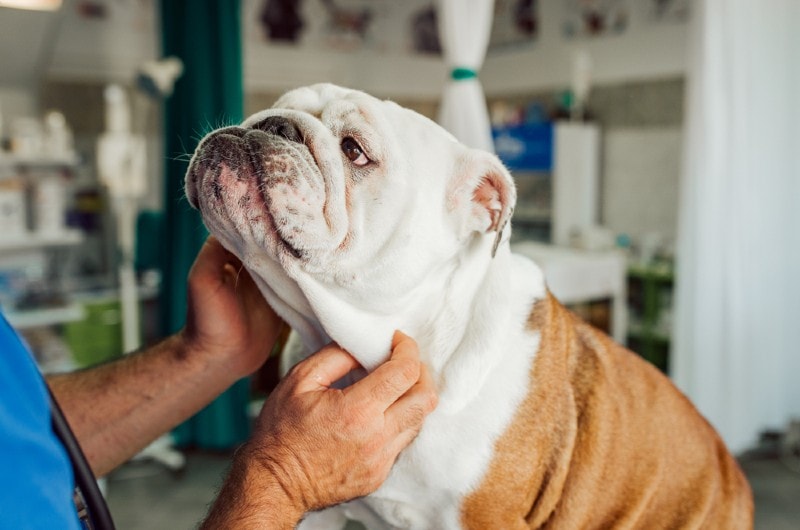
Grain-Free Diet FAQs
Q: What is the idea behind grain-free diets?
This type of diet is based on the unproven theory that grains are not a natural or necessary part of a canine’s diet.. The idea behind this is that it may improve your pet’s overall health by reducing inflammation and improving digestion.
Q: Is grain-free food better for my dog?
No research currently exists to show that it is. Some dogs may benefit from a grain-free diet in specific instances, while others may do just fine with traditional kibble. Talk to your veterinarian to decide which type of food is best for your pet.
Q: What types of food should I look for if I want to switch my pup to a grain-free diet?
Look for dog food that is labeled as “grain-free” or “gluten-free”. These diets are designed to be free of grains, so they will not contain any wheat, corn, rice, barley, oats, rye, or other common grains. Make sure to check the ingredients list for any hidden sources of grain as well. Additionally, pay attention to the protein content and make sure that it’s high enough for your pup’s needs. Finally, read reviews from other pet parents who have used the food to get a better idea of how it may work for your pup.
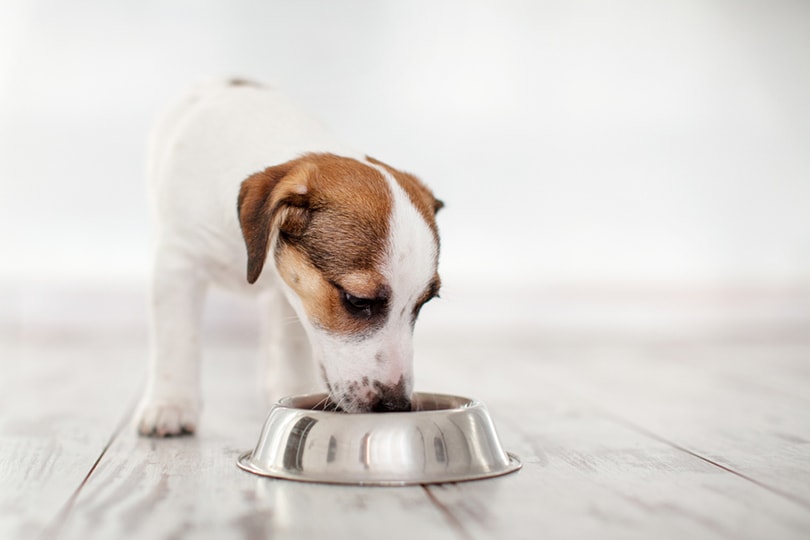
Q: Is grain-free food suitable for all dogs?
No, it is not suitable for every dog. For example, puppies may need more carbohydrates than a grain-free diet can provide, and some dogs may have allergies to certain proteins or vegetables that are in grain-free foods. Talk to your vet before making any big changes to your pup’s diet. Ultimately, the best diet for your pup will depend on their individual needs and preferences. Keep in mind that it’s important to feed them a balanced diet with all the nutrients they need to stay healthy!
Q: Do grain-free diets cause dilated cardiomyopathy in dogs?
Recent research suggests that some grain-free diets may be linked to an increased risk of dilated cardiomyopathy (DCM) in certain breeds. However, the exact cause is still unknown and further studies are needed to better understand this possible link. While scientists are still investigating the link between grain-free diets and heart disease, they’re still considered safe and healthy overall.
Q: Do grain-free foods help with allergies?
It’s possible that grain-free foods can help reduce the symptoms of certain allergies, but this is not always the case. Depending on the cause of your pup’s allergy, switching to a grain-free diet may or may not be beneficial. Talk to your veterinarian about any allergies your pup may have, and if it’s recommended for them to switch to a grain-free diet.

Q: Are grain-free diets more expensive?
Yes, generally speaking, grain-free diets tend to be more expensive than traditional kibble. However, the cost can vary depending on the brand and type of food you choose. If you want to save a little money, be sure to compare prices and check for any discounts or promotions that may be available.
Q: Are there alternative diets for dogs who cannot have grain-free food?
Yes, there are a variety of other types of diets that can be suitable for your pup, including raw diets and home-cooked meals. Talk to your vet about which type of diet would best suit your pup’s needs and preferences. Additionally, there are some grain-free treats available for dogs who cannot consume grain-based food. Be sure to read the ingredients list carefully to make sure that the treat does not contain any grains or other allergens.
Conclusion
With the right food, your pup will be your best friend for longer! Grain-free dog food may offer some benefits for certain dogs, but it’s not for every dog. It’s important to weigh the pros and cons before making any changes to your pet’s diet. Talk to your veterinarian if you have any questions. Your dog’s diet is one of the single most important factors in their overall health. A little research now has the potential to add years to your pup’s life!
See Also:
Featured Image Credit: Karsten Winegeart, Unsplash

